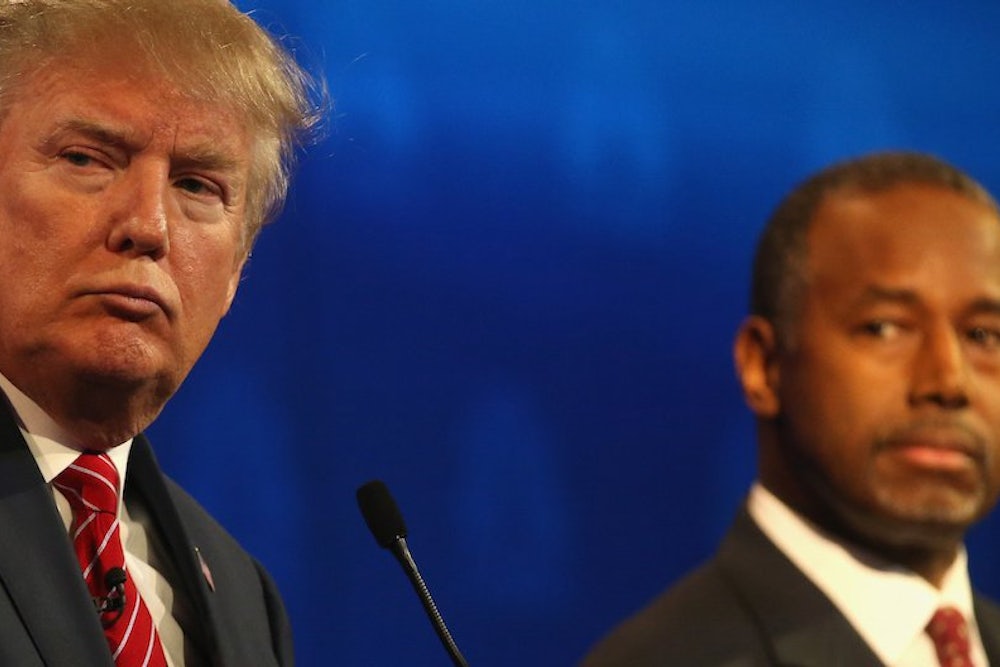Republicans are three debates in, and the presidential candidates have yet to field a substantive question on climate change.
CNBC’s debate on Wednesday in Colorado was supposed to focus on economic growth. But one of the greatest uncertainties about future economic growth and national security has barely warranted a passing mention in any of the GOP forums. Don’t blame the candidates for this one, blame the networks moderating the debates. CNBC doesn’t seem to recognize the huge economic costs fossil fuels impose on the country.
By the International Monetary Fund’s estimate, the hidden costs of fossil fuels amount to $5 trillion. A 2014 White House report found that global temperatures of 3 to 4 degrees Celsius above preindustrial averages would cost the U.S. economy $150 billion each year. Those costs only grow with time. The ski industry alone is a major force for Colorado’s tourism, but shorter winters and less precipitation have cut into profits. Nationwide, the nearly $11 billion ski and snowboard industry saw less revenue in the last decade, compared to its best seasons before it, because of too little snowfall. Colorado faced deadly torrential flooding in 2013 and was in the grips of a multi-year drought until spring 2015.
The GOP candidates spent much of the debate lambasting the moderators for what they perceived as biased questions. On climate change at least, the moderators did fall down on the job.
During the undercard debate earlier in the evening, CNBC did question New York Governor George Pataki and South Carolina Senator Lindsey Graham about climate change, and received strong responses from the only two candidates in the GOP race who do accept climate science. “I'm not a scientist, and I've got the grades to prove it,” Graham said. “But I've talked to the climatologists of the world, and 90 percent of them are telling me that greenhouse gas effect is real.” Pataki echoed the sentiment. “One of the things that troubles me about the Republican Party is too often we question science that everyone accepts," Pataki said.
The issue received scant attention in primetime as well, with just a single question going to New Jersey Governor Chris Christie. Perhaps that’s because the top Republican candidates largely agree that the government should do nothing about climate change, even if they do think scientists might be onto something.
So far this election cycle, just four minutes have been devoted to the subject in a primetime GOP debate. In the second debate hosted by CNN in drought-stricken California, Jake Tapper asked, ”Why not take out an insurance policy and approach climate change the Reagan way?” But CNN quickly moved to more “lighthearted” topics, like asking the candidates which woman they would put on the $10 bill.
What was so remarkable about the first Democratic debate was that candidates for once brought up climate change on their own. The candidates actually wanted to detail what they can do on climate change. It's a shame the GOP candidates have been allowed to ignore the issue almost entirely.
